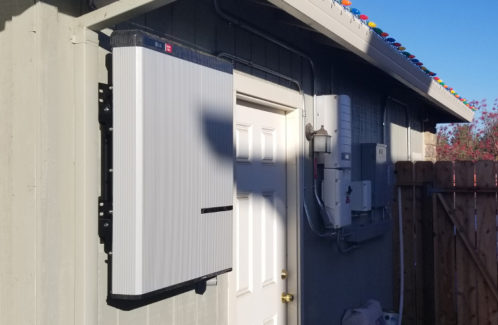LG Energy Solution (formerly LG Chem) has announced a replacement program for certain energy storage batteries manufactured between April 2017 and September 2018. LG is conducting this precautionary action after reported incidents of battery overheating. Based on its review, LG determined there were issues in the early production process for electrodes used in these potentially affected lithium-ion batteries used in energy storage systems (not in EVs).
“Customer safety and product quality are the highest priority in our decision-making process. With the announcement today, we will further enhance the safety of our products, as LG Energy Solution strives to make the world’s safest batteries,” said Jong Hyun Kim, President of LG Energy Solution.
LG Energy Solution’s battery replacement program will provide free batteries at no additional charge that incorporate manufacturing process improvements that further enhance the safety of its energy storage batteries. All proposed safety measures, including the replacement of the potentially affected batteries, will take place after consultation with customers.
LG Energy Solution will also implement remote modifications to the potentially affected batteries, where possible, to reduce the potential for overheating while owners of the affected energy storage system units wait for their replacement units. In addition, LG Energy Solution will be updating the battery diagnostic and control software at domestic and overseas sites. Field inspections will also be undertaken to monitor and minimize the potential for further incidents.
Where applicable, owners of potentially affected batteries will be directly contacted if their battery is subject to the replacement program.
Further details regarding how to participate in the free replacement program will be published on the LG website shortly.
LG batteries were used in the April 2019 deflagration incident at a 2.16-MWh lithium energy storage system facility in Surprise, Arizona. UL released recommendations last year to establish new standards and codes at lithium storage sites, including more fire service training.






